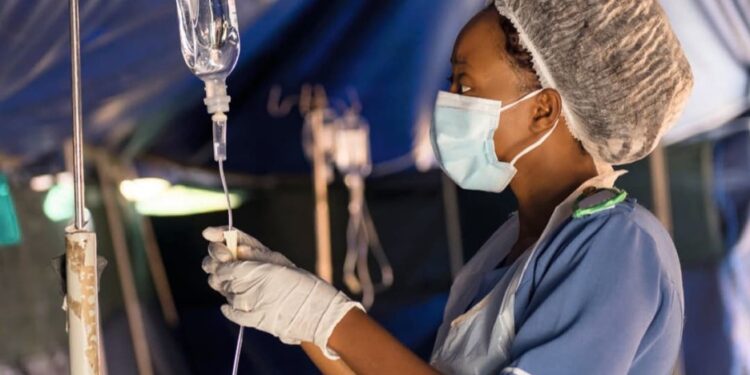Published: May 20, 2025
MONROVIA — Liberia’s health sector is facing a near-collapse, with 97 percent of public healthcare workers earning wages too low to cover basic living expenses, according to a new report from international development group ActionAid.
The report, titled “The Human Cost of Public Sector Cuts in Africa,” assesses the state of health and education systems across six African nations—Liberia, Ghana, Kenya, Malawi, Ethiopia and Nigeria. In Liberia, the findings show that health workers are unable to afford food, rent or transportation, despite being on the front lines of public service.
Wages Below Survival Level
According to the report, most health workers surveyed in Liberia earn between $100 and $150 per month. With no recent wage adjustments and inflation continuing to rise, those salaries fall far below the threshold needed to sustain an average household.
As a result, health workers across the country—both in urban centers and remote areas—are reportedly skipping meals, walking long distances to work, and postponing rent payments. Many are turning to informal loans or community support to make ends meet.
Donor Funding Withdrawals Worsen Crisis
The situation has been made worse by the withdrawal of significant donor funding. The United States Agency for International Development (USAID), which once contributed more than $50 million in support to Liberia’s health sector, has pulled back funding, the report says.
That withdrawal has triggered job cuts, disrupted services, and placed even greater pressure on the already overwhelmed remaining staff. Medical facilities once jointly supported by donors and the government are now operating with fewer personnel and diminished medical supplies.
IMF Policies Under Fire
The report also blames restrictive fiscal policies imposed by the International Monetary Fund (IMF) for exacerbating the crisis. Liberia’s ongoing IMF-supported program enforces strict spending caps that limit the government’s ability to raise public-sector wages or hire new healthcare workers.
According to ActionAid, those austerity measures are disproportionately affecting women, who make up the majority of Liberia’s healthcare workforce.
Boakai’s Reform Agenda Under Pressure
The revelations come as President Joseph Boakai’s administration pushes forward with its ARREST Agenda, a reform plan that emphasizes investment in health and education. But experts warn that the financial constraints threatening the health sector could undermine the administration’s broader goals.
Without new revenue streams or a return of donor support, the government’s public sector reform efforts may stall, further weakening essential services.
Officials at the Ministry of Health have acknowledged the growing strain on the system. According to sources familiar with internal discussions, talks are ongoing around strategies for workforce retention, salary adjustments, and sector financing.
Call for Policy Shift
In response, ActionAid is urging a move away from austerity and toward pro-investment policies that prioritize the welfare of frontline public servants. The report calls on African governments and international financial institutions to adopt more equitable fiscal strategies that build resilient national systems rather than weaken them.
As Liberia’s economy continues to strain and healthcare workers face deepening hardship, ActionAid warns that the cost of inaction will be borne not only by those wearing white coats—but by the millions of Liberians who rely on them every day.










Discussion about this post